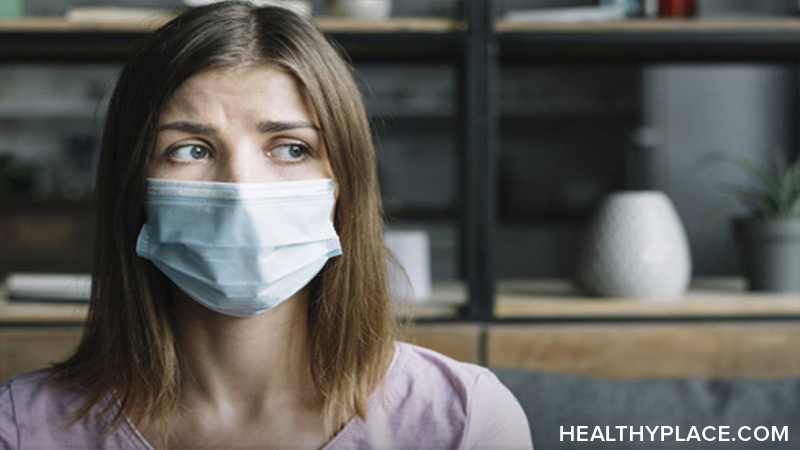How Pandemic Fatigue Makes Mental Health Recovery Harder

Recovering from mental illness is a lot of work all on its own, but lately, those of us in recovery have been handling another major mental health issue: pandemic fatigue. I'm calling pandemic fatigue the sense of weariness and hopelessness that comes from social distancing and missing out on big events as the world battles COVID-19. Lately, pandemic fatigue has been making it much harder for me to focus on my mental health recovery because I've had to go without my usual coping mechanisms for months now.
How Pandemic Fatigue Impacts Recovery
Dealing with pandemic fatigue while in recovery from a mental illness is sort of like being crushed by a boulder, and then someone adds another boulder on top of the other one. It just compounds all of the issues you were already dealing with. I've found this is especially true because the pandemic has taken away a lot of my typical coping mechanisms, like hanging out with my sisters when I'm anxious or doing some retail therapy when I'm feeling sad.
How has pandemic fatigue affected your recovery progress? Let me know in the comments, and if you want to hear more about my experience dealing with pandemic fatigue in recovery, check out the video below.
APA Reference
Griffith, M.
(2020, October 27). How Pandemic Fatigue Makes Mental Health Recovery Harder, HealthyPlace. Retrieved
on 2026, March 5 from https://www.healthyplace.com/blogs/recoveringfrommentalillness/2020/10/how-pandemic-fatigue-makes-mental-health-recovery-harder
Author: Megan Griffith
This is such a real and important topic for people to be discussing. Pandemic fatigue is a very real thing and the implications it can have a far-reaching, especially for those who are working with mental illness. I think your point about not having access to your usual support structures is one that many people can relate to. Finding ways, even small ones, to shift the perspective away from pandemic thoughts and to create new coping mechanisms and sources of support has been so beneficial.
Absolutely. Usually I would say avoidance is a bad way to cope, but honestly, my mental health has improved tremendously just by trying to forget about the pandemic in general whenever possible.